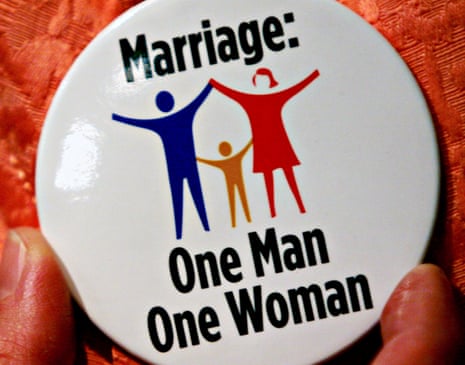More than one in four people across the world think people engaging in same-sex relationships should be charged as criminals, according to a new survey of 77 countries and territories.
However, there were major divisions in attitudes towards the criminalisation of those engaging in same-sex relationships when broken down across regions, the 2017 Ilga-Riwi global attitudes survey to sexual and gender minorities found.
Almost half of respondents (45%) in the 15 African countries surveyed said those who have same-sex relationships should be charged as criminals, a sentiment shared by 36% of respondents in the Middle East.
At the other end of the spectrum, 15% of respondents from Australia and New Zealand said they agreed with this sentiment, along with 19% of participants in North America (the US and Canada combined), South America and western Europe.
Even within those countries where such criminalisation has long been abolished, there was a significant minority who believed those engaging in such relationships should be charged.
In the UK, where homosexuality has been decriminalised for 50 years, one in six people (17%) agreed that “people who engage in romantic or sexual relationships with people of the same sex should be charged as criminals”. In Australia the figure stood at 16%, while 18% of US respondents agreed with the statement.
“It is worrying that these attitudes towards criminalisation hover around the 20% mark in many developed countries,” said lead survey researcher and co-author of the report, Aengus Carroll. He added that this was partly due to continued prevalence of a “traditional values matrix” and a cohort of people who mistakenly equate homosexuality to “darker things like paedophilia”.
Across all the countries surveyed, 28.5% of respondents to the survey said that people who engage in same-sex relationships should be charged as criminals.
In the 25 surveyed countries in which homosexual activity is already criminalised, a majority of respondents – 42% – said people who engage in such relationships should be charged as criminals compared with 36% who disagreed.
“The law of the land affects the attitudes of people in the land,” said Carroll. “In repressive states where there are repressive laws, attitudes of the public are affected by the laws and this is very clear in this data.”
Elsewhere almost half of those questioned (48%) in the broader survey said they could respect their religion while being accepting of “people who are romantically or sexually attracted to people of the same sex”. This compared with 30% who felt the two were incompatible.
However, there were significant differences at a regional level. In Africa, 43% of respondents said they could be accepting of homosexuality while respecting their religion; 42% said the two were incompatible.
A similar pattern emerged when people were asked if it was possible to respect their religion while also being accepting of people “who dress, act or identify as a different gender” to that designated at birth.
South American respondents were most likely to feel that the two were compatible, with more than two-thirds agreeing with the statement. Conversely, 43% of respondents from the Middle East agreed with this sentiment, while 36% said they disagreed.
Carroll emphasised that there were positives to be taken from this part of the survey, given the rhetoric of some religious leaders, who teach that their religion does not accept people of sexual and gender minorities.
“This data is really surprising on that level in that it shows us the huge level of people who feel they can have respect for their religion and be accepting.”
A persistent theme in the survey, across countries and topics, was the finding that those who know someone who is gay or bisexual or identifies as another gender are much more likely to support their equal rights and protections.
When all responses from all countries were taken together, 55% agreed that equal rights and protections should apply to gay and bisexual people, while 59% said the same of those who are transgender or gender-diverse.
However, that figure rose to 73% among people who knew someone of either cohort.
People who said they did not know someone who was gay or transgender were much less likely to say equal rights should be extended to them, at 44% and 54% respectively.
“It is universally clear,” the authors said, “that when respondents know someone belonging to sexual or gender minorities in their cultures their attitudes appear to be significantly more inclusive and inclined towards equal treatment.”
